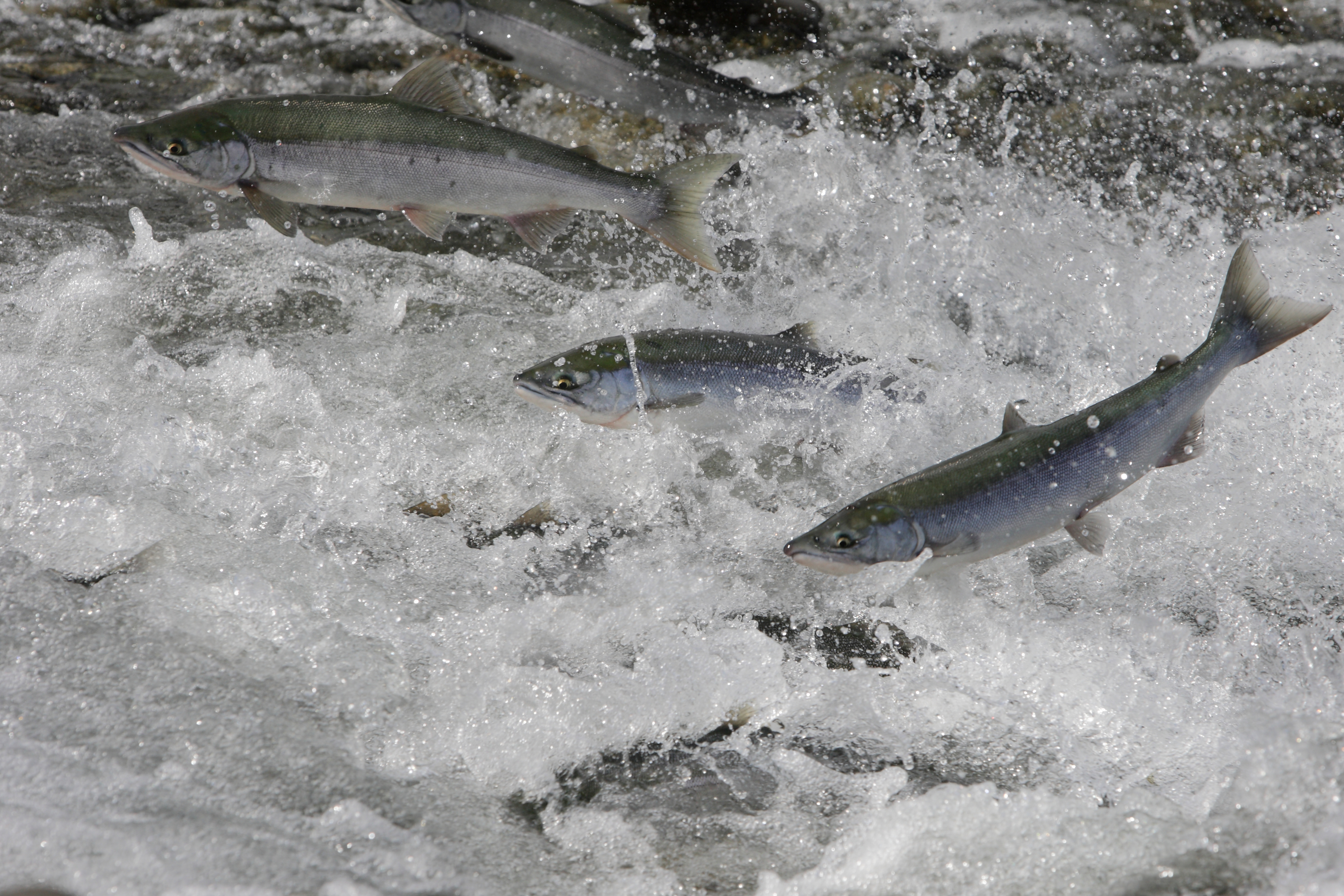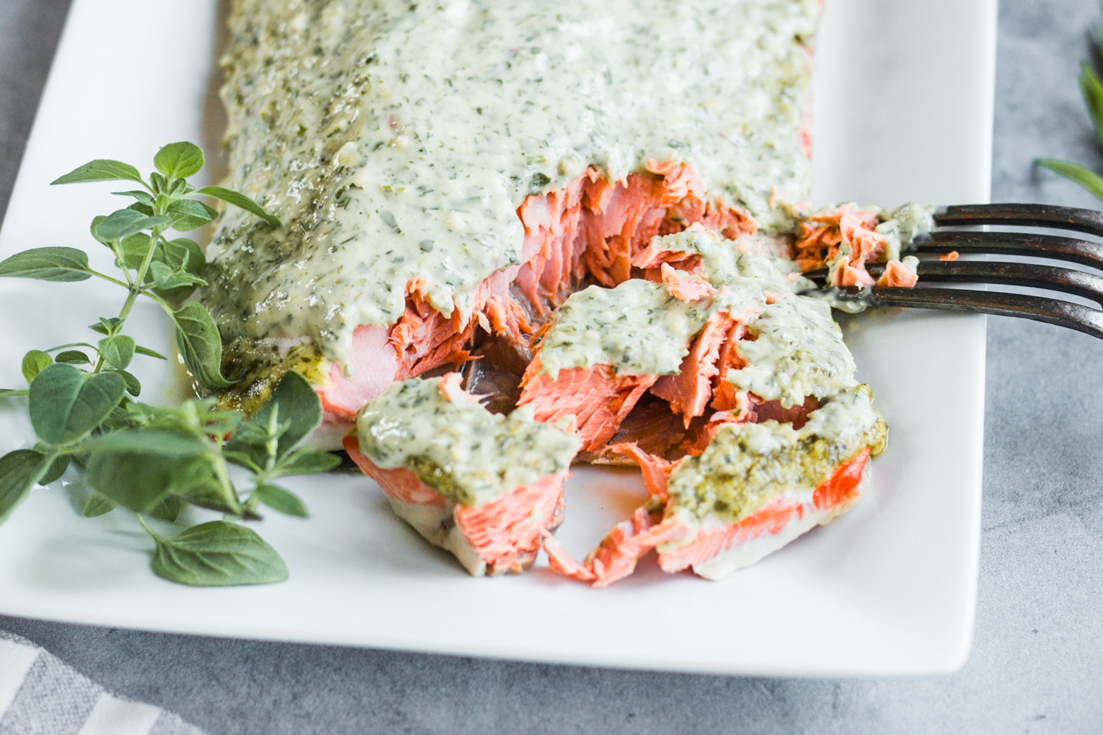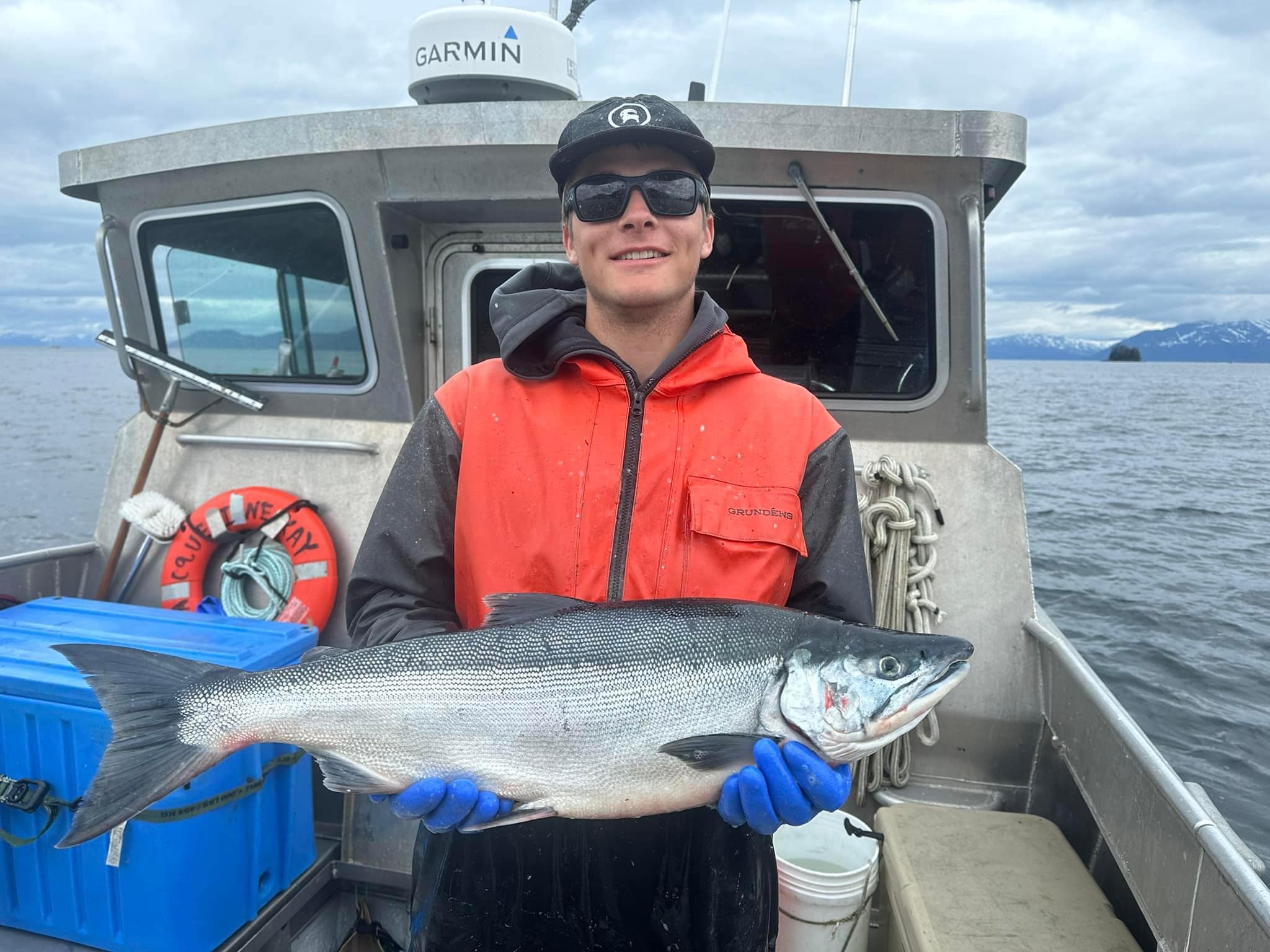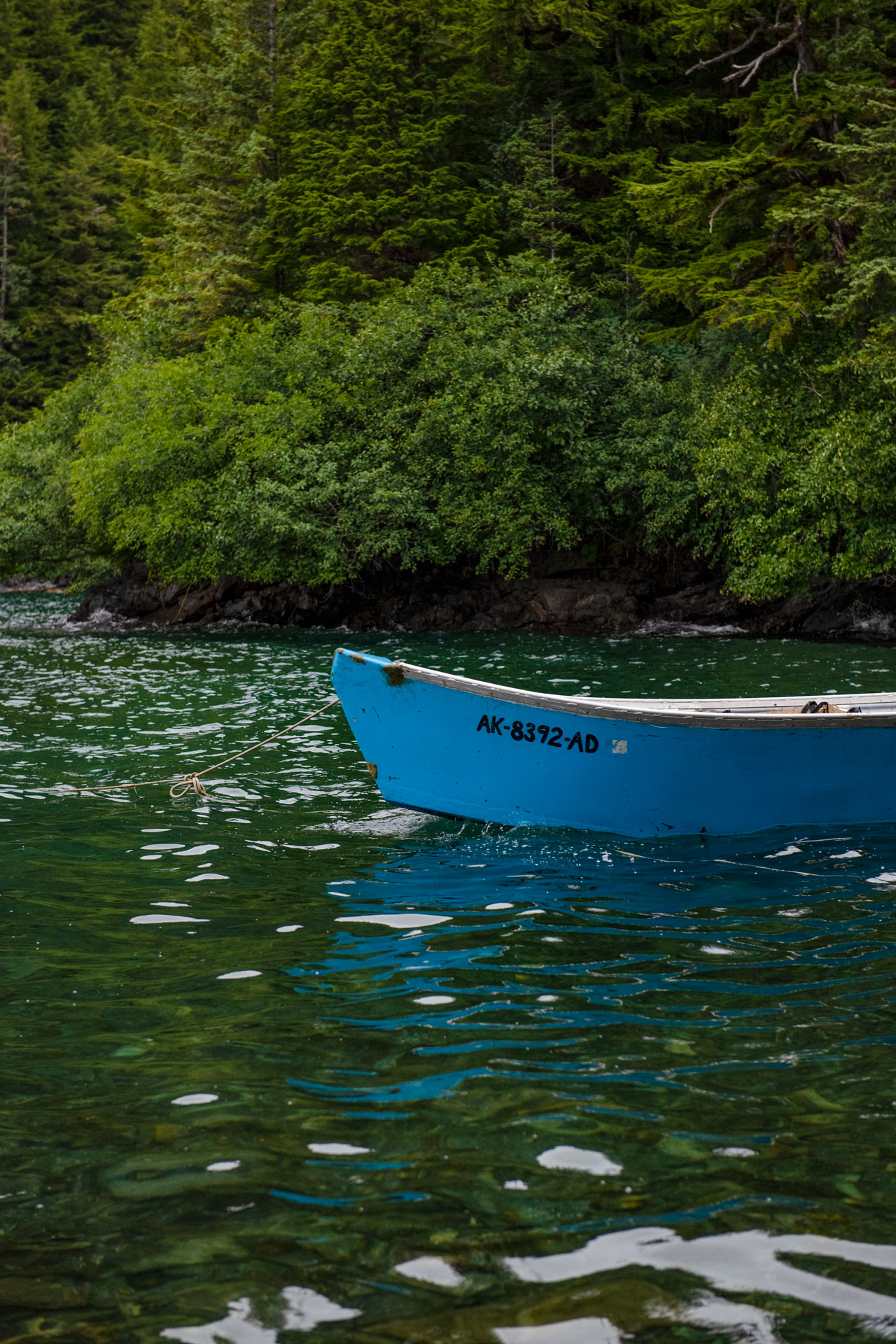By using our website, you agree to the use of cookies as described in our Cookie Policy
The First Year
Here I was, a new mom taking on a new adventure and in need of a fishing partner for the fishing season. Being ever so cautious, my husband maintained his job and housing in town those first few years in an effort for stability while we paid off the cost of our permits and equipment. This left me in need of a trustworthy co-fisher/permit holder. Naturally, I asked my sister, who had also fished for a time with my uncle. She had put up with me on an epic bike trip and was currently living in Homer. She confessed in that big winter moment that she was willing, but also pregnant. So when May rolled around, my toddler and I, my sister, and her 3-month-old headed out to fish camp to take on the world, or at least on a journey for a new adventure.
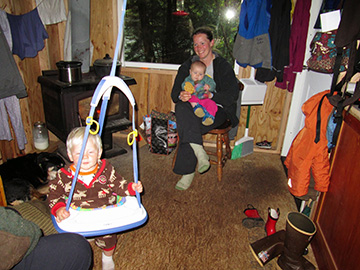 My husband would come help us get set up and would end up taking his boat over to our fish camp several times that season, spending his days off picking fish and parenting. We also had a young and experienced crewman that had returned from the days at my aunt and uncle's fish camp. The cooking was primarily managed by my visiting in-laws, and my mother would watch the two little ones.
My husband would come help us get set up and would end up taking his boat over to our fish camp several times that season, spending his days off picking fish and parenting. We also had a young and experienced crewman that had returned from the days at my aunt and uncle's fish camp. The cooking was primarily managed by my visiting in-laws, and my mother would watch the two little ones.
We probably wouldn't have survived without all the help. That first year, ADF&G (Fish & Game) had us fishing pretty wide open. Our openers, or the times allotted to fish set by Alaska Fish & Game, were 60 and 84 hours. This meant our nets had to be out of the water for a mere 12 hours, twice a week. Considering the time we waited after the 8pm closures for a tender to complete our offload, to getting out and prepped early to set the nets by 8am the next morning, we probably had less than 8 hours off twice a week. Never mind the sleepless babies waiting for us at the cabin.
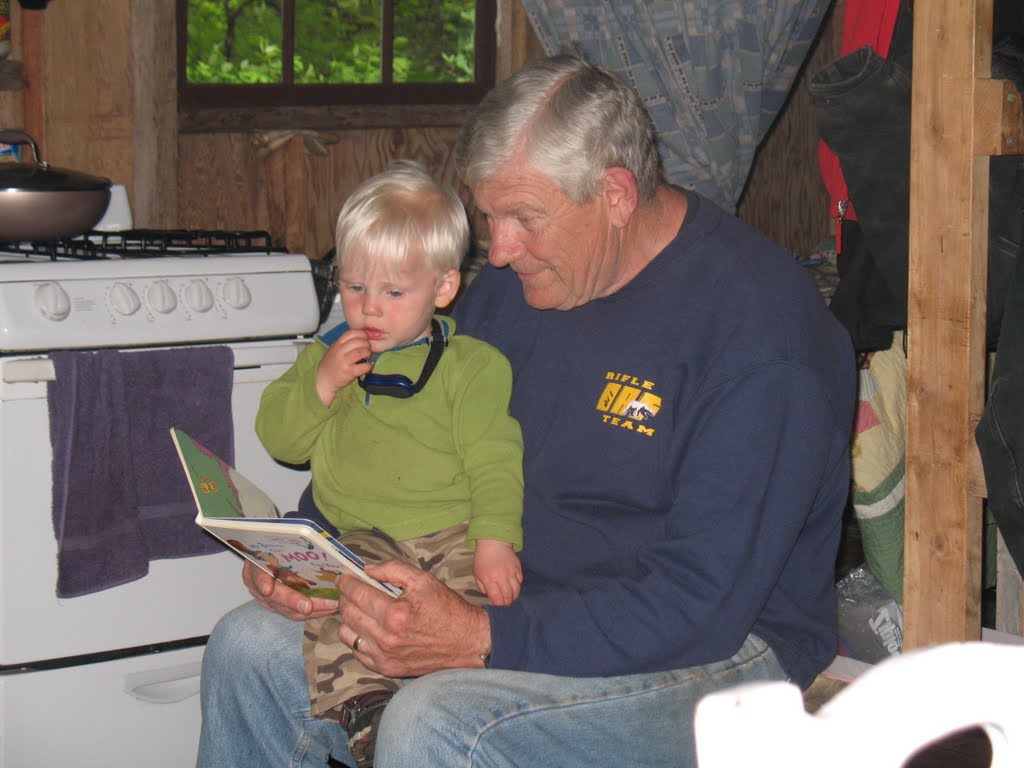 Many times that summer, we questioned why Fish & Game was cruel enough to make us pull nets at all, it being the most laborious and stressful part of the job. Many times we cursed them and wished desperately that they would let us leave our nets out to save us the arduous and physical labor of pulling them in by hand. As if the intense schedule wasn’t enough, it was a horrifically cold and wet summer. We dirtied and soaked a ton of clothing trying to stay warm and dry. In addition, we were both determined to use cloth diapers, not wanting to create trash. Keeping fires going to keep babies warm, diapers dry, and filthy clothes clean after hand-washing was a full-time job. To top things off, we were both breastfeeding, my sister exclusively.
Many times that summer, we questioned why Fish & Game was cruel enough to make us pull nets at all, it being the most laborious and stressful part of the job. Many times we cursed them and wished desperately that they would let us leave our nets out to save us the arduous and physical labor of pulling them in by hand. As if the intense schedule wasn’t enough, it was a horrifically cold and wet summer. We dirtied and soaked a ton of clothing trying to stay warm and dry. In addition, we were both determined to use cloth diapers, not wanting to create trash. Keeping fires going to keep babies warm, diapers dry, and filthy clothes clean after hand-washing was a full-time job. To top things off, we were both breastfeeding, my sister exclusively.
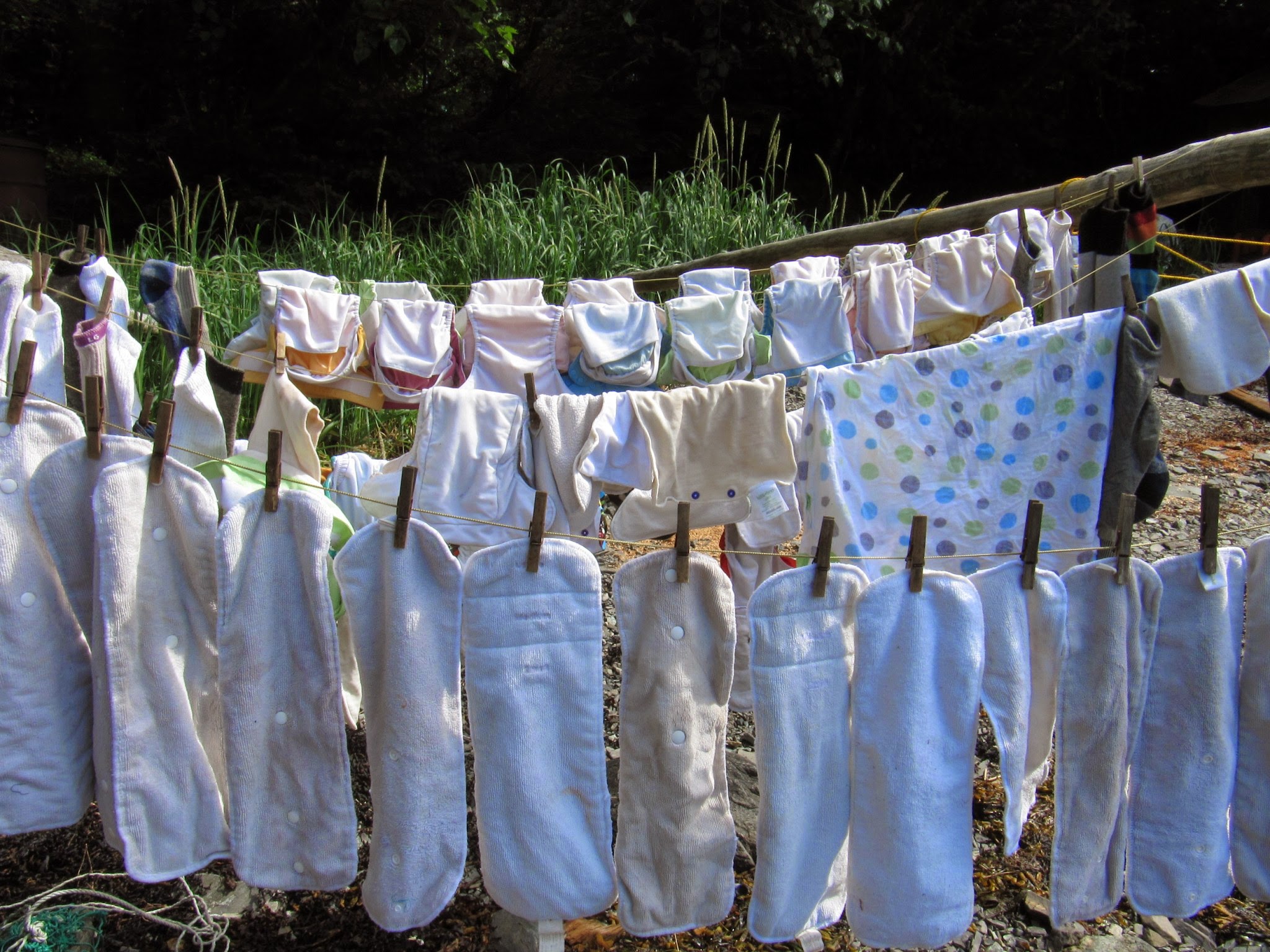
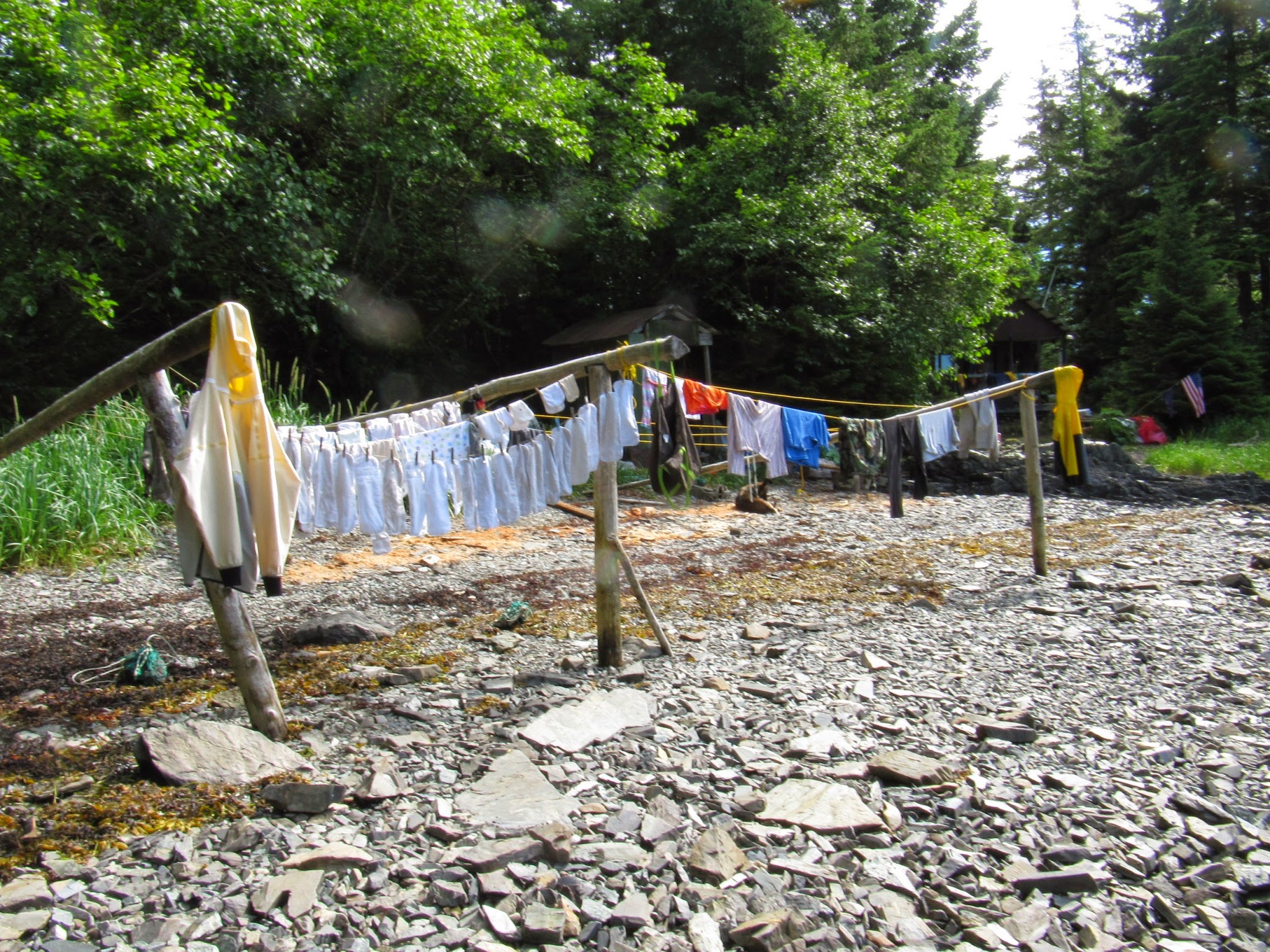
In reminiscing, we call it the summer she disappeared. Between the extended fishing schedule, the strong salmon runs, frigid weather, shore chores, and her hungry baby her clothes rapidly began to sag on her freshly postpartum body. We both very quickly became lean, strong, ravenous, and interminably exhausted. No quantity of food and snacks could keep us satiated, no amount of sleep was enough, and sometimes our children, being so young, needed their moms despite the best efforts of others.
Our nights were short and sleepless, our days long and grueling. We were often cranky and impatient with each other and the people helping us; survival was our only goal.
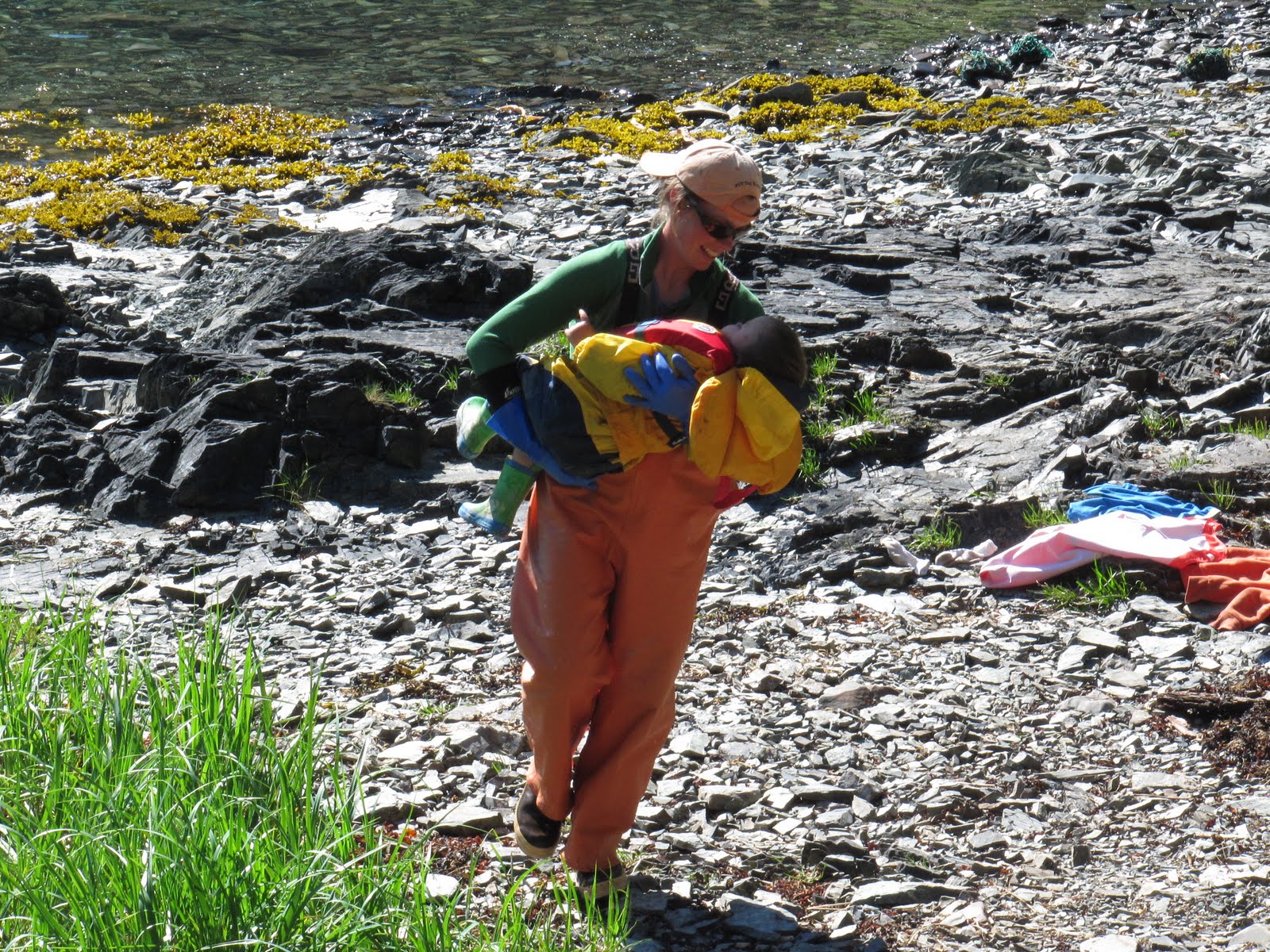 There were many glitches that first season, things we had to improvise and compromise on. Our tenderman was a new contract, someone we had grown up with. Being a young parent himself, was both attentive and patient with us.
There were many glitches that first season, things we had to improvise and compromise on. Our tenderman was a new contract, someone we had grown up with. Being a young parent himself, was both attentive and patient with us.
There were times we had our babies with us when we were signing fish tickets, or times we sent the crewman to offload and come pick us up to quickly sign off. There were times we weren’t sure how we would get our nets in on the closure, and times they weren’t back in the water promptly at 8am. When a baby needed to be settled or fed, there was no way around it; we were determined to be moms first and fishermen second.
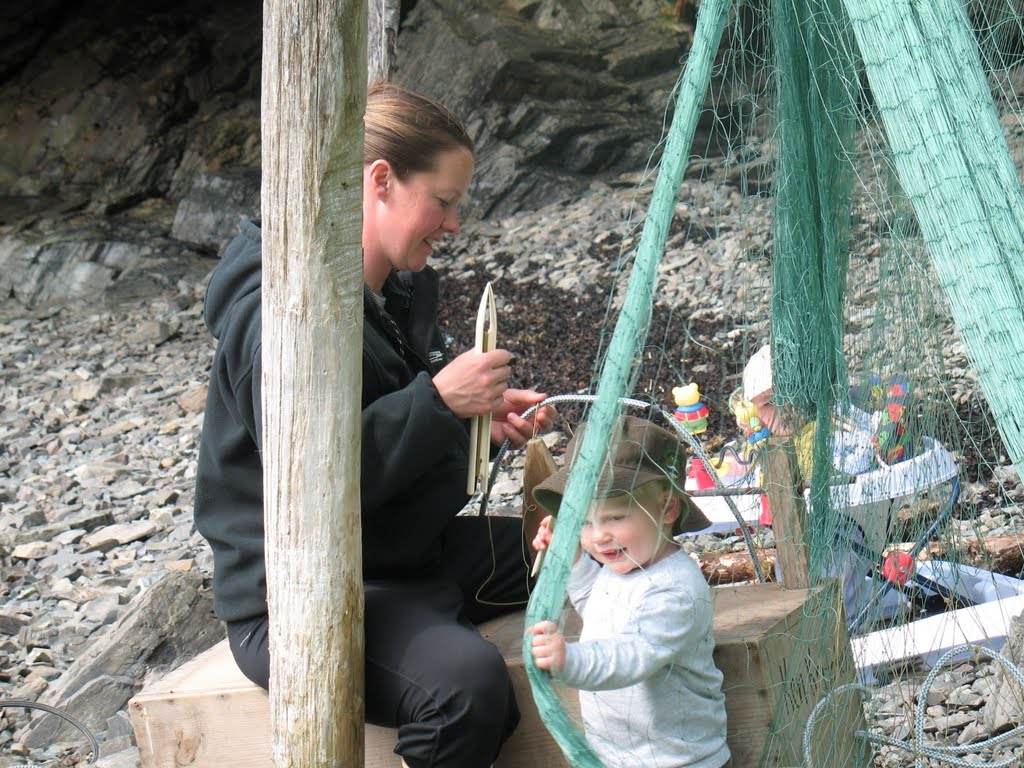 When there was a torn net that needed to be partially rehung neither of us had much of a clue how to do it, nor the time to do it. Once the wind and tide were such that our net came in a big rolled up ball of kelp and had to be picked through and cleaned out and untangled before resetting.
When there was a torn net that needed to be partially rehung neither of us had much of a clue how to do it, nor the time to do it. Once the wind and tide were such that our net came in a big rolled up ball of kelp and had to be picked through and cleaned out and untangled before resetting.
There was a time the weather was so foul we asked our little brother who was drifting nearby to reel our net in on his boat with his hydraulics and offload in the shelter of the cove. It didn’t feel safe to pull our net in manually from our skiff. Being two new moms in a tiny skiff with needy babies left on shore added a new and unfamiliar element of fear and caution to everything we did. Where we had once been perhaps too relaxed about our float coats or going out alone, we began wearing them religiously, setting time limits on when we would go out alone, and opting out of questionable conditions. Now we'd always go in pairs and be sure to leave a spare skiff accessible to whomever was left on shore.
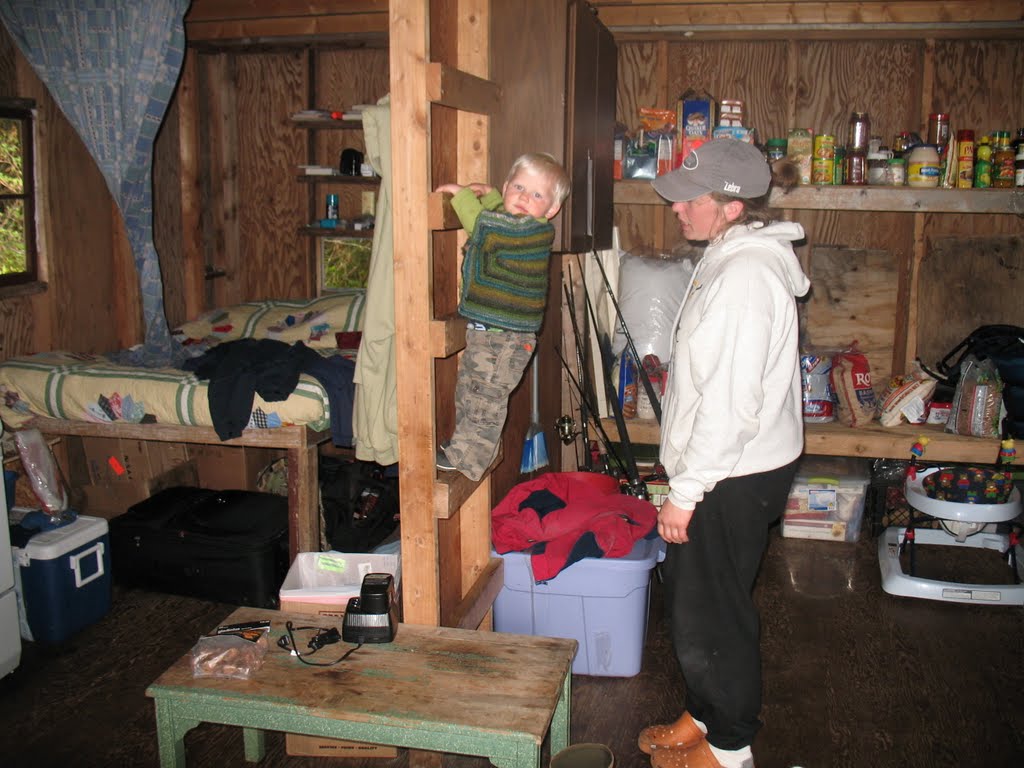
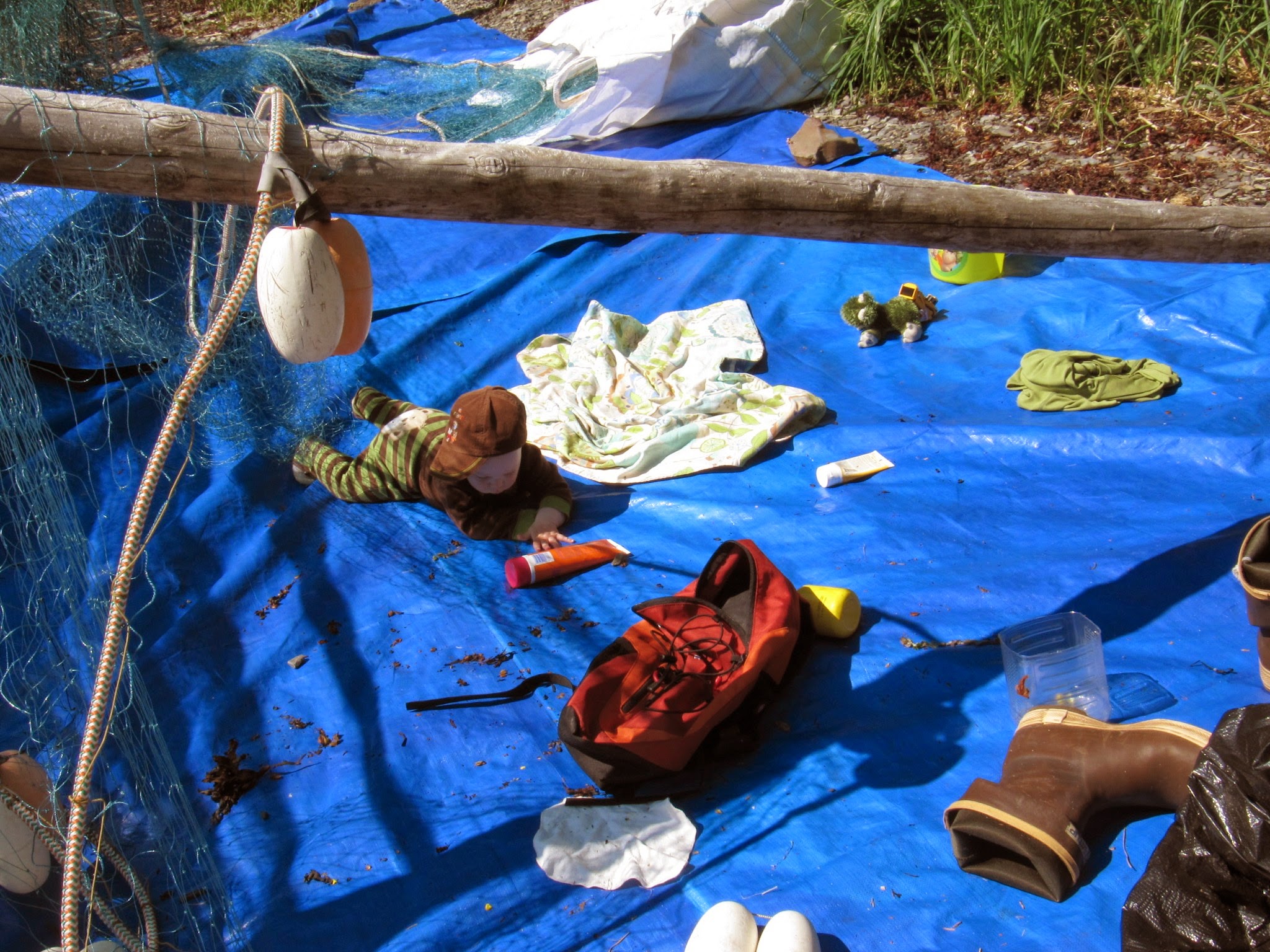
That first summer went by in an exhausted blur. We had set ourselves catch goals, and came close enough to meeting them that we were able to pay off our bills. The way we navigated that first season felt good. We learned a lot that year and knew that no matter what the following fishing seasons would bring, we would surely be stronger, wiser, better equipped, and at the very least, less exhausted by life and the fishing schedule. We were confident that there was no feasible way it could ever be harder, we had survived the worst, and thus dubbed it a success.
MEET THE AUTHOR
Lynnette Wright
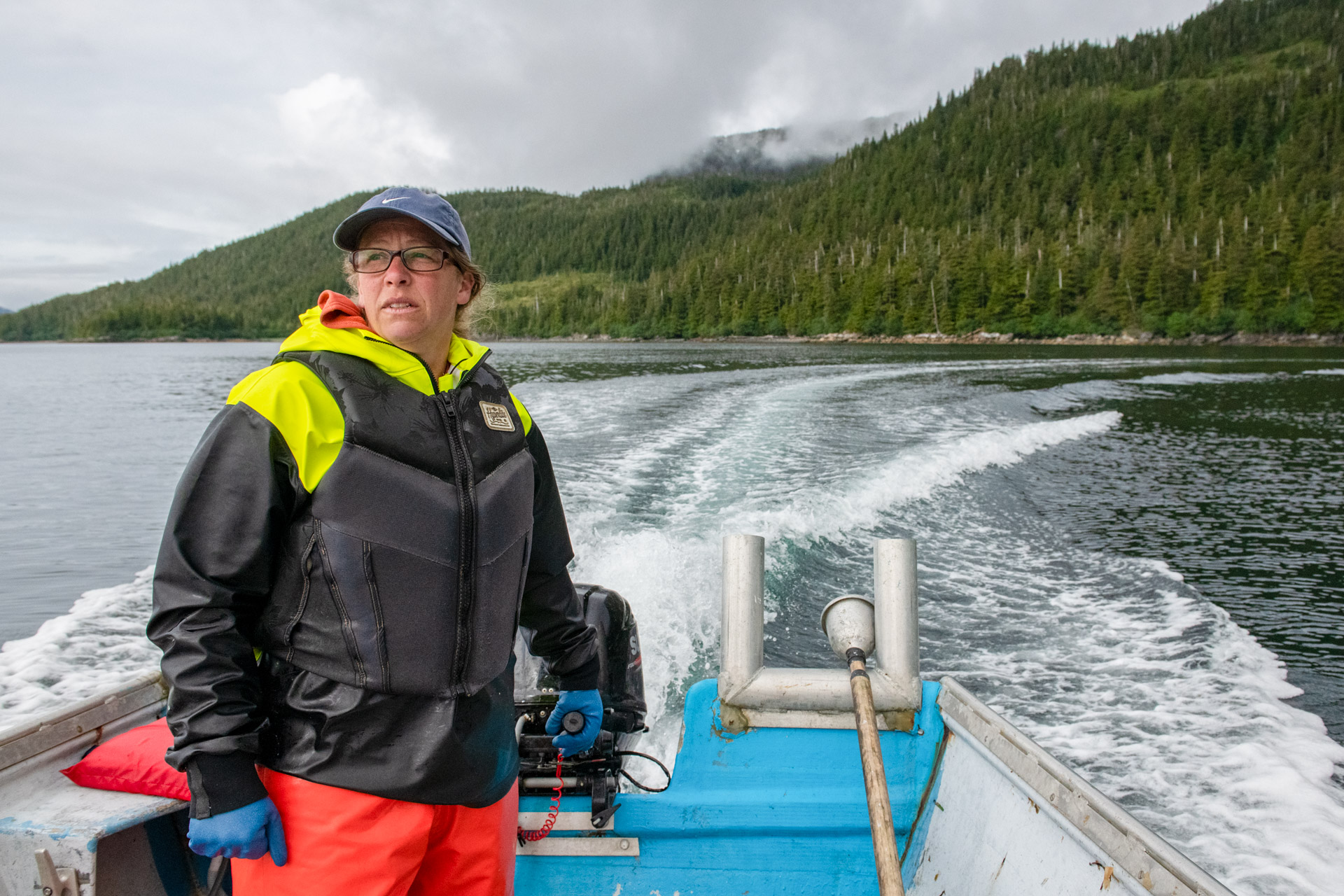
Lynnette Wright is a third generation commercial fisherman, aspiring writer, and full-time mom. She began commercial fishing in 2003 and became a set-gillnet permit holder in the fall of 2010. Along with her husband and growing children, (and other family/crew helpers) she and her family fish a total of three set-gillnet permits in the Eshamy district in Prince William Sound. Two of those sites have been in her family since the 1960s and the cabin and property from which fish-camp is operated is privately owned by her maternal grandmother and her children, making it a true family heirloom.
Lynnette treasures the strong undercurrent of family that underlies her entire fishing experience. That bridge between past, present and future makes it incredibly special. In addition to that, deep family connection, the excitement of fish in the net, the peace of a quiet moment alone on the vast ocean, sunshine on the beach on a day off, and the freedom and simplicity of life at fish camp is what keeps the whole family coming back, even more than the fish themselves.
‹ Back


